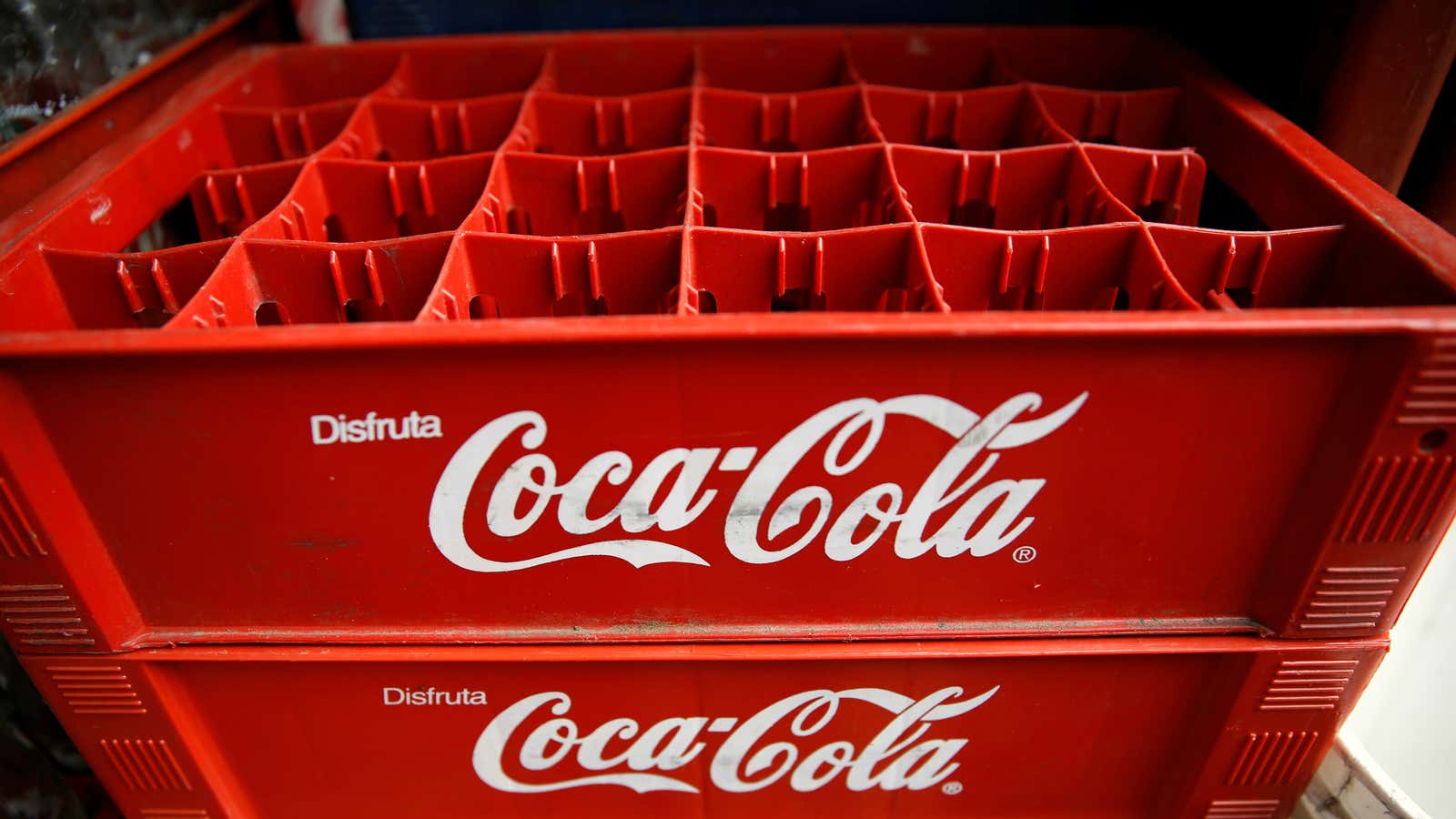Health advocates have a message for US soda companies: Buckle up, you’re in for a bumpy ride.
On Election Day (Nov. 8), voters in California and Colorado voted overwhelmingly to adopt measures that levy one-cent-per-ounce taxes on sugary beverages. On Nov. 10, a measure taxing sodas also passed in Cook County, Illinois (which includes Chicago) by a tight 9-8 vote by county commissioners.
While health advocates celebrated victories, the outcome leaves a grim future for the soda industry.
The industry had outspent advocacy groups three to one in the Bay Area this cycle, stuffing mailers in mailboxes and buying television and digital ads as early as August. But proponents of the soda taxes fought back with help from deep pocketed-friends. Former New York City mayor Michael Bloomberg spent more than $21 million in this cycle to support the pro-tax movement. Texas philanthropists Laura and John Arnold also contributed millions of dollars.
“The momentum is clearly behind us, the wind is at our back,” said Howard Wolfs, a senior adviser to Bloomberg. “We look forward to continuing these efforts in the months to come.”
There was no one unifying argument for passing soda taxes. Some municipalities, such as Philadelphia, passed the soda tax to fund universal pre-kindergarten education for children. In Boulder, the funding was promised to go toward health initiatives—putting health at the center of the debate.
“The soda industry faces an existential crisis in which they are on the cusp of becoming social pariahs, much like the tobacco industry,” said Dan Newman, who worked as a strategist for the campaigns. US consumption of soda has been steadily decreasing for years.
In 2014, the country’s first soda tax measure passed in Berkeley, California. The soda industry, represented by the American Beverage Association, insisted it was an anomaly, that it would only appeal to voters in that super-liberal enclave.
That argument is now in dead in the water, as evidenced by the industry group’s short statement in response to its crushing defeat this election cycle:
We respect the decision of voters in these cities. Our energy remains squarely focused on reducing the sugar consumed from beverages—engaging with prominent public health and community organizations to change behavior. We’re driving this change across America, including communities with the highest rates of obesity. It’s the hard work necessary for true and lasting change.
Word is bubbling that a soda tax measure is imminent for Santa Fe, New Mexico. What remains unclear is whether the industry will pour more millions into that market to defeat the initiative, or if it will move on to a more imperative battle: convincing the American people that soda isn’t really all that bad for you.
